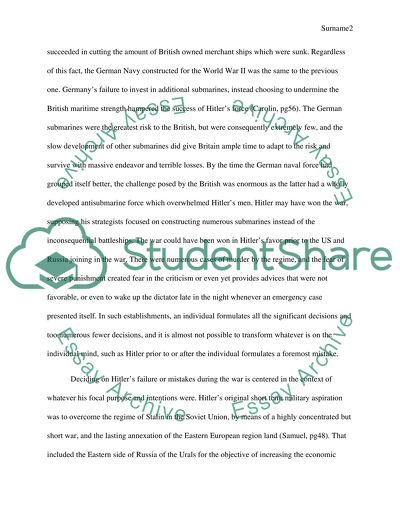Cite this document
(“Which of Hitler's key Mistakes Had the Greatest Effect on His Defeat Research Paper”, n.d.)
Which of Hitler's key Mistakes Had the Greatest Effect on His Defeat Research Paper. Retrieved from https://studentshare.org/history/1451845-which-of-hitler-s-key-mistakes-had-the-greatest
Which of Hitler's key Mistakes Had the Greatest Effect on His Defeat Research Paper. Retrieved from https://studentshare.org/history/1451845-which-of-hitler-s-key-mistakes-had-the-greatest
(Which of Hitler'S Key Mistakes Had the Greatest Effect on His Defeat Research Paper)
Which of Hitler'S Key Mistakes Had the Greatest Effect on His Defeat Research Paper. https://studentshare.org/history/1451845-which-of-hitler-s-key-mistakes-had-the-greatest.
Which of Hitler'S Key Mistakes Had the Greatest Effect on His Defeat Research Paper. https://studentshare.org/history/1451845-which-of-hitler-s-key-mistakes-had-the-greatest.
“Which of Hitler'S Key Mistakes Had the Greatest Effect on His Defeat Research Paper”, n.d. https://studentshare.org/history/1451845-which-of-hitler-s-key-mistakes-had-the-greatest.


